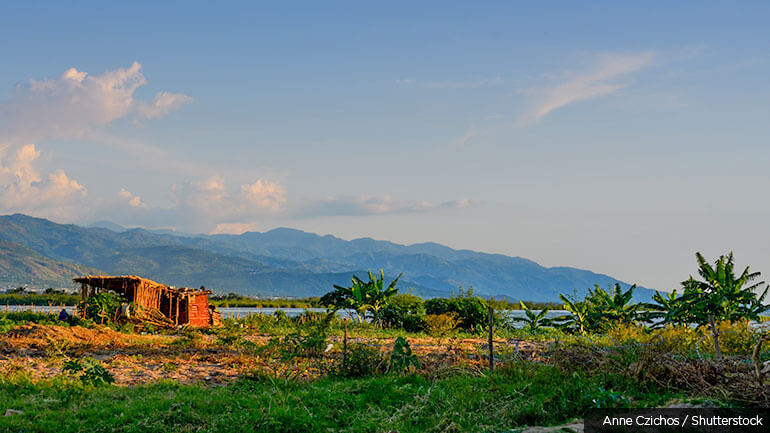
Environmental fragility and the population's dependence on natural resources for their livelihoods drive conflict in Burundi. Since 2015, the country has experienced unprecedented, forced displacement with an influx of migrants from the Democratic Republic of Congo. Climate-related disasters cause approximately 83 percent of these forced displacements, while the fragile socio-economic situation causes the remaining 17 percent. Climate change compounds pre-existing risks through rising rainfall and temperature variability.
The PROGREEN knowledge program promoted landscape restoration and climate resilience post-COVID-19 in Burundi by facilitating investments in Burundi's landscapes. Building on landscape investments initiated in Burundi in 2018, this activity aimed to develop the evidence base for scaling up those investment and building consensus among stakeholders. Specifically, the activity diagnosed the underlying drivers of fragility in Burundi's colline landscapes, often stemming from a combination of climate risks, environmental degradation, and conflict, and developed multi-sector investment plans to address identified fragility drivers across Burundi's 2,639 collines.
This activity closed in Fiscal Year 2022, with the delivery of a joint World Bank and Government of Burundi Climate-Fragility Report. The report presents findings from multi-risk hotspot mapping and a land degradation assessment covering landslides, erosions, and the potential of nature-based solutions. The project team successfully developed three interactive online platforms: an e-book, a story map, and a digital knowledge platform to disseminate findings. Government officials, national stakeholders, and international partners have reported using the interactive knowledge platforms for further research and project scoping. Additionally, the team produced four colline climate action plans (CCAPs) as part of a new nationwide operation.
Overall, activities under the program strengthened the Bank's engagement with the Ministry of Environment, Agriculture, and Livestock as well as informed the development of several other programs, including a new US$100 million IDA-financed World Bank operation.